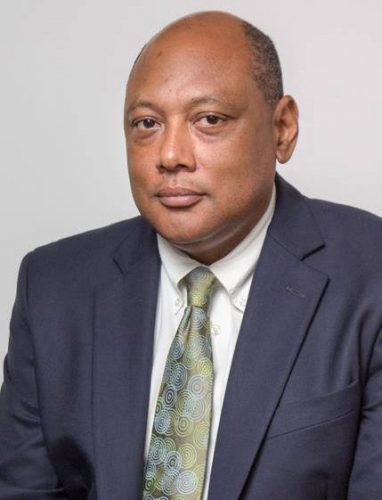Although government favours the presence of oil majors here for strategic purposes, it is also welcoming the interest being shown by Guyanese companies in the country’s remaining oil blocks, according to Natural Resources Minister Raphael Trotman, who says it is also important that local firms have a stake in the developing oil and gas sector.
Currently, the government is seeking to find an international firm to advise on the best way to market the country’s remaining oil blocks, which have attracted significant interest due to the hydrocarbon discoveries that have been made by ExxonMobil and its partners.
Trotman has already said that US oil major Chevron, Brazil’s Petrobras and France’s Total are among companies seeking the few remaining oil blocks here.
In an interview, he told Sunday Stabroek that in addition to the expressions of interest from international companies, local companies have also come forward, which has been refreshing for the government.
He noted that the administration believes that although local companies may not have the financial wherewithal to explore and produce, this should not disqualify them from consideration as they could find investors and ensuring local content is critical.
Last week Sunday Stabroek reported that two local companies, JHI and Mid Atlantic Oil and Gas, had been granted concessions on the eve of the last general elections by former president Donald Ramotar, who said that while the companies did not have the actual finances, the fact that they were local and had the capacity to bring in investors were considerations.
Ramotar told this newspaper that then Minister of Natural Resources Robert Persaud had made a case for JHI and Mid-Atlantic Oil and Gas Inc., saying that they were local companies, whose principals had lengthy associations with the nascent oil and gas sector.
‘A chance’
Trotman said that while the granting of the concessions looked “strange,” Ramotar’s argument for having locals was sound and patriotic.
“On the face of it, it did look strange. On the other hand, you are looking at a criteria that is not a financial ability but if you have the ability to bring other majors with you. From what I read last Sunday, some of the players were not unknown to Guyana. I think you want to ensure that there is some local content—some countries have legislated this. You don’t want to find that you have given away and given everything to the super majors and Guyanese are left without having a chance or a stake. Guyanese may never have a chance and there is some belief of that as well. I’ve since seen names associated with JHI—Mr. [Edris Kamal] Dookie, of course [and] I’ve seen former foreign minister Rashleigh Jackson as a spokesperson for them, so there seems to be some kind of local content with this company that may have influenced the former president,” he said.
“As I have said, we want companies that have a strong track records, insofar as their capacities, technical and financial, which would include they embrace Guyanese…,” he added, while saying that there has been no directive pertaining to an investigation of any of the contracts signed with the local companies.
Trotman added that the government would love to see Guyanese companies in the upstream oil and gas industry and was pleased to see the Beharry Group submitting a proposal but also noted that it would require finding major funding.
“We would love to know that there are companies indigenous to Guyana. I know that one group, the Beharry Group, had shown an interest. There is another, NABI, but to put down a deep well offshore, you need funding. Hundreds of millions… it requires finding a way to give Guyanese a way of participating,” he said.
Trotman also pointed out that companies buying into sectors then seeking investors is common in the extractive sector.
“You have squatting on lands for mining. Small miners complain that a few big [miners] are given most of the mining land. It is the way the extractive sector has worked for decades. It is not always in the best interest of the sector but it is how the system works some of the big companies go out and sell and find others and go find investors,” he said.
“It is not altogether an immoral thing, I think it just has to be managed better. Quite frankly, I believe that every government has a duty and responsibility to empower Guyanese, separating empowerment from greed or fostering greed. But I do believe that we do have a duty to inform Guyanese… there is nothing immoral in having local people involved in the value chain but I believe it should be structured and managed,” he added.
‘Taking time’
Meanwhile, Trotman said that in seeking the help of an international firm to advise on the marketing of the remaining oil blocks, the government is taking care in choosing one that is reputable.
“There seems to be the indication that every day something should be happening. I think we need to take our time choosing the firm and also in allocating what is left. We are looking at international law firms and international accounting firms… of repute,” he said.
“We do have a list which was generated from several ministries but I don’t have it in front of me now. The idea is other countries—Brazil, Mexico [for example]—they would have done auctions etcetera and would have done international negotiations, so the idea is to get the benefit of that… to discuss what it is we want to offer, when and where,” he added.
Trotman stressed that for the David Granger-led administration, it was not “only how much money we can earn. We are also looking for a company that has a good environmental track record, good [corporate social responsibility] credentials… we look for companies that have the capacity and the courage to stand up [for] those concerns,” he emphasised.










